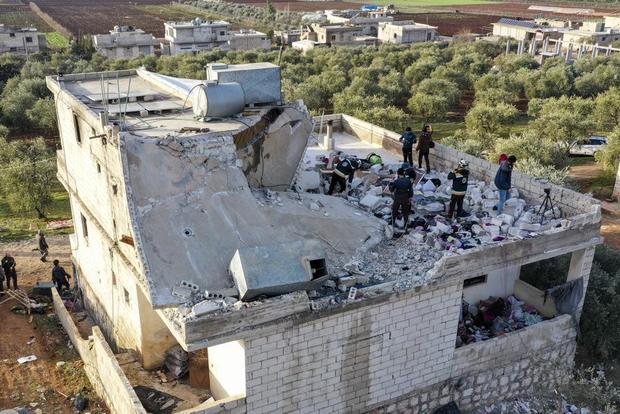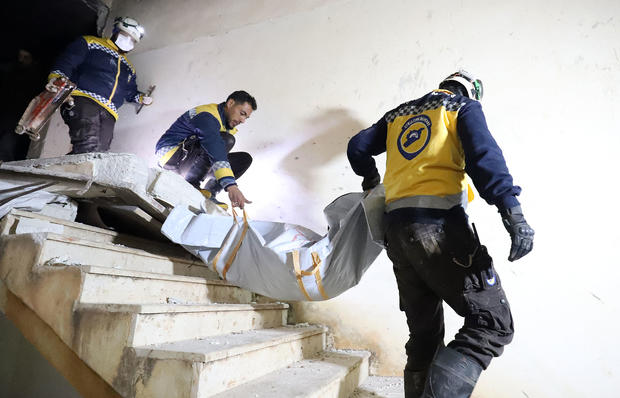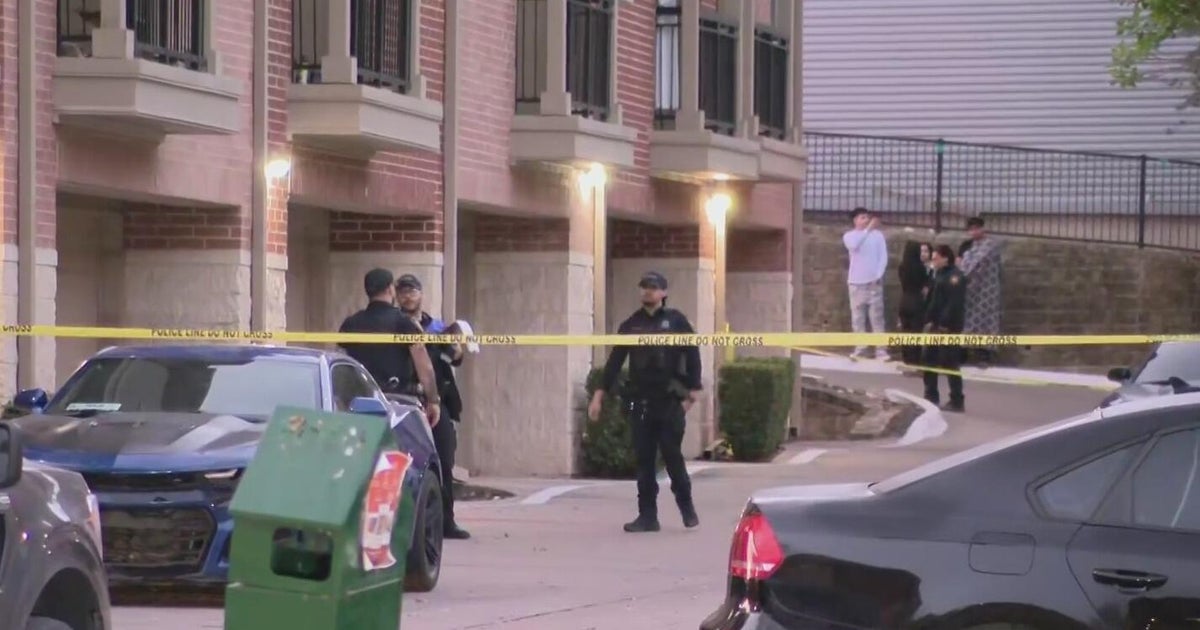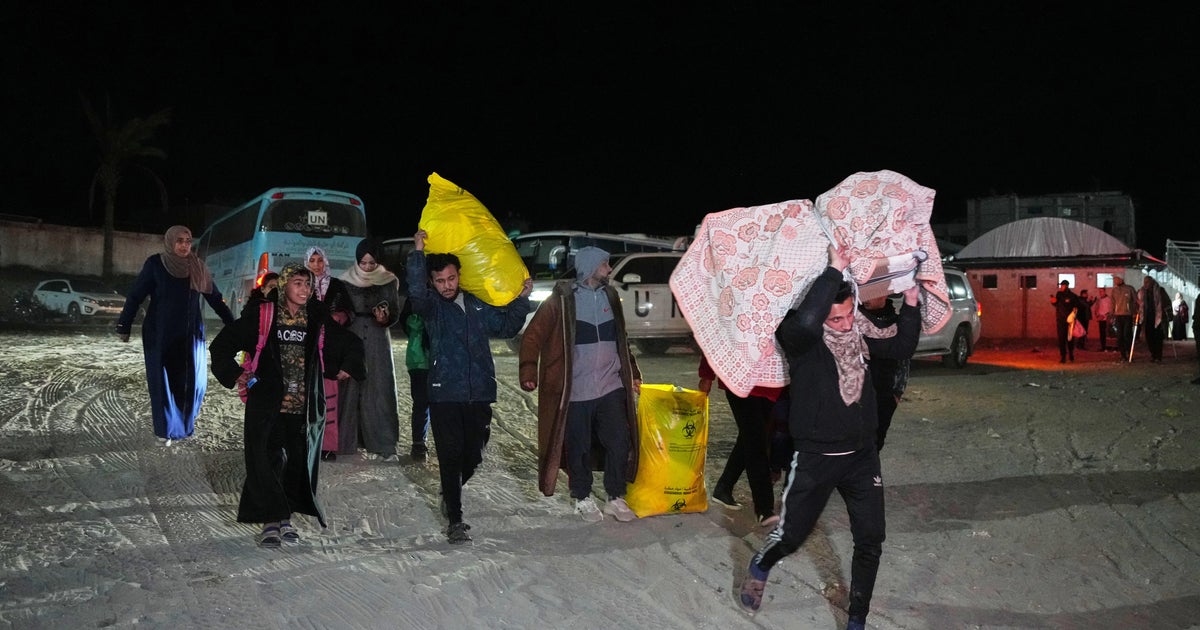ISIS leader blows himself up during U.S. special ops raid in Syria
Washington — U.S. special operations forces conducted a large-scale counterterrorism raid in northwest Syria overnight Thursday that has once again left the ISIS terror group without a leader. Mr. Biden issued a brief statement early on Thursday describing the raid as a "counterterrorism operation to protect the American people and our Allies, and make the world a safer place."
Abu Ibrahim al-Hashimi al-Qurayshi, the current leader of ISIS, was "taken off the battlefield" in the operation, Mr. Biden said, confirming that all U.S. forces who took part had returned safely.
A senior Biden administration official told CBS News senior White House and political correspondent Ed O'Keefe on Thursday that al-Qurayshi "exploded a bomb that killed him and members of his own family" as the raid got underway."
Speaking later Thursday morning at the White House, Mr. Biden said the choice was made to go after the ISIS leader with a special forces raid rather than a missile strike in an effort to avoid civilian casualties. He said al-Qurayshi "chose to blow up" both himself and the entire third floor of the home he was holed up in, which led to the death of his own family members.
The president lauded the U.S. forces who carried out the raid, and called it "testament to America's reach and capability to take out terrorists anywhere they hide in the world."
"We will come after you and find you," Mr. Biden warned other terror leaders.
Several residents told The Associated Press they saw body parts scattered around a house in the village of Atmeh, near the border with Turkey. They spoke on condition of anonymity for fear of reprisals following the raid, which they say involved helicopters, explosions and machine-gun fire.
The Britain-based Syrian Observatory for Human Rights, which relies on a network of sources on the ground in Syria and has been a largely reliable source of information during the grinding civil war in the country, said the strike left at least 13 people dead, including four children and three women. The "White Helmets," a volunteer rescue agency, said four women and six children were killed.
The senior administration official who spoke to O'Keefe on Thursday also said al-Qurayshi's own bomb had killed women and children in his family.
"While we are still assessing the results of this operation, this appears to be the same cowardly terrorist tactic we saw in the 2019 operation that eliminated" al-Qurayshi's predecessor, the official said.
CBS News national security correspondent David Martin said it was the biggest U.S. military operation in Syria since the October 2019 killing of then-ISIS leader Abu Bakr al-Baghdadi. It had been planned for months, since at least December, when U.S. commanders became certain that they knew al-Qurayshi was staying at the home in Atmeh.
In his remarks at the White House, President Biden said al-Qurayshi had been "responsible for the recent brutal attack on a prison in northeast Syria," and that he was "the driving force behind the genocide of the Yazidi people in northwestern Iraq in 2014."
The U.S. forces landed in the area of the house using helicopters and attacked it. One of the American aircraft suffered mechanical problems and had to be destroyed not far from the raid, but the U.S. forces were able to evacuate aboard the other helicopters.
Taher al-Omar, an Idlib-based activist, said clashes broke out between fighters in the area and the special ops forces.
Residents and activists in the area described seeing a large ground assault, with U.S. forces using loudspeakers asking women and children to leave the area.
The military operation got attention on social media, with tweets from the region describing helicopters firing around a building near Atmeh. Flight-tracking data also suggested that multiple drones were circling the city of Sarmada and the village of Salwah, just north of there in Idlib province.
The clandestine operation came amid efforts by ISIS to stage a comeback after its bid to establish a caliphate failed in 2019, following several years of fighting in Syria and Iraq. In recent weeks and months, the group has launched a series of attacks in the region, including the 10-day assault late last month to seize a prison in northeast Syria.
The attempted prison break was the biggest military operation by the extremist group since ISIS was defeated and members scattered to havens in 2019. The U.S.-led coalition carried out airstrikes and deployed American personnel in Bradley Fighting Vehicles to the prison area to help the Kurdish forces.






